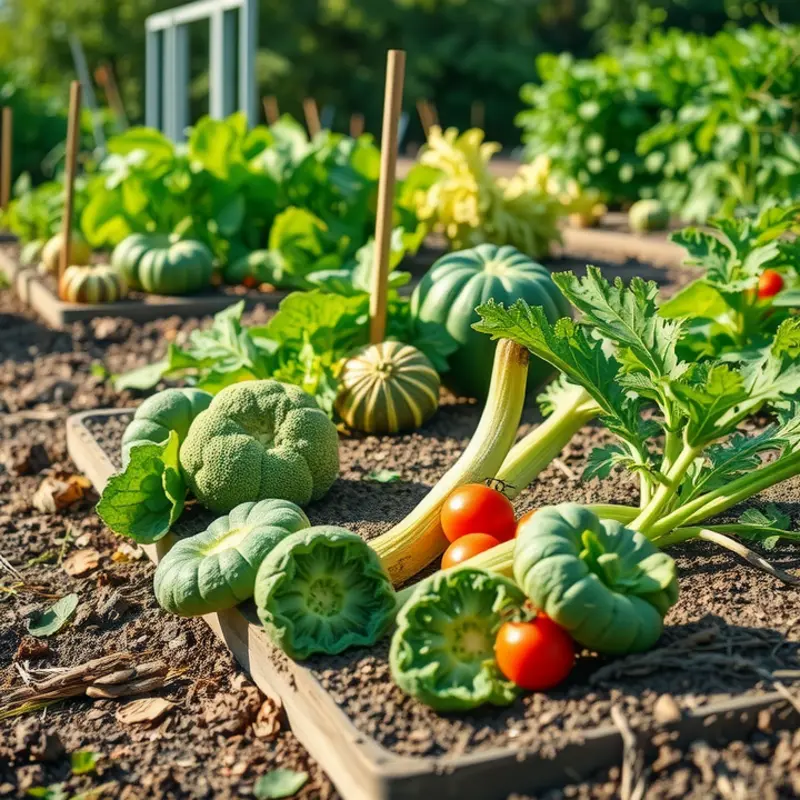In today’s world, making eco-friendly choices in food sourcing is more critical than ever. Environmentally-conscious individuals are increasingly aware of how their dietary choices affect both the planet and the animals we share it with. The journey toward sustainable eating goes beyond selecting organic fruits and vegetables, extending to understanding the conditions under which our food is produced. By focusing on responsible sourcing and animal welfare, we can align our eating habits with our environmental values and make a meaningful impact on both ecosystems and animal lives.
The Impact of Food Choices on Animal Welfare

The choices we make about food sourcing have profound impacts on animal welfare and the sustainability of our planet. Factory farming, a major food sourcing method, often comes under scrutiny for its ethical dilemmas and environmental repercussions. Animals in these systems are typically confined in cramped spaces, deprived of natural behaviors, and exposed to stressful conditions, all of which deteriorate their quality of life.
Factory farming also imposes a heavy toll on the environment. Large-scale operations often lead to significant land degradation, water pollution, and greenhouse gas emissions. Beyond harming animals, these practices can erode ecosystems, impacting biodiversity and the intricate balance of natural habitats.
In contrast, regenerative agriculture represents a more holistic approach to food production. This method aims to revitalize ecosystems while enhancing animal welfare. Animals in regenerative systems typically have access to open pastures, which allows for natural grazing and the ability to exhibit behaviors inherent to their species. This not only fosters a better quality of life for the animals but also contributes to a healthier ecosystem through improved soil health and biodiversity.
Regenerative agriculture emphasizes ethical treatment and ecological health, creating a more sustainable food system. This approach encourages rotational grazing and integrates diverse plant and animal species, which helps maintain the nutrient cycles in the soil and reduces the need for chemical fertilizers.
The ethical considerations surrounding food sourcing extend beyond the methods themselves. Consumers have the power to support practices that align with their values. By choosing animal products from farms that prioritize welfare and sustainability, individuals contribute to a larger shift toward ethical consumption.
Moreover, integrating plant-based options into diets can further enhance both animal welfare and environmental sustainability. Reducing reliance on industrial animal agriculture in favor of plant-forward eating habits can lessen the demand for systems that harm animals and ecosystems. Resources such as easy plant-based eating tips are available to assist in transitioning to more sustainable dietary habits.
There is an interconnectedness between our food choices, animal welfare, and environmental health. By embracing higher welfare practices and prioritizing sustainable sourcing, we take steps toward a more compassionate world where both animals and humans thrive. This transformation is not merely a consumer action but a crucial move towards preserving our planet for future generations.
Practical Tips for Sustainable and Ethical Eating

Making sustainable and ethical food choices can be a rewarding journey that aligns your dietary habits with your values. Below are some practical tips to help you make more informed decisions about the food you consume.
1. Prioritize Local Sourcing
Purchasing food from local farmers not only supports the community but also minimizes the carbon footprint associated with long-distance transportation. Visit farmer’s markets to find fresh, seasonal produce and learning from growers about their farming practices can be an enlightening experience. Also, consider joining a Community Supported Agriculture (CSA) program to regularly receive fresh, local produce.
2. Look for Certifications
When shopping for meats and dairy, opt for products with certifications that assure higher animal welfare standards. Labels such as certified humane or free-range indicate that animals are raised with care, giving them access to the outdoors and ensuring better living conditions.
3. Reduce Meat and Dairy Consumption
Incorporating more plant-based meals into your diet is an effective way to lower your environmental impact. Foods such as legumes, nuts, and whole grains are not only nutritious but also have a lower carbon footprint compared to animal products. For guidance on easy ways to embrace plant-based eating, visit this resource.
4. Choose Sustainable Seafood
Fishing practices affect marine ecosystems, making sustainable seafood choices critical. Look for certifications like the Marine Stewardship Council label, ensuring that the seafood is sourced responsibly. Diverse options beyond popular choices like shrimp and salmon can help reduce overfishing pressures.
5. Reduce Food Waste
Implementing strategies to minimize food waste is crucial for sustainability. Plan your meals effectively, donate excess food, and explore ways to store leftovers, such as using airtight containers and marking dates. Check out this guide on eco-smart kitchen storage.
6. Grow Your Own Food
Even a small garden can make a significant impact. Growing herbs and vegetables in your backyard or balcony ensures fresh produce and reduces resource use in production and transport. It’s an empowering way to directly involve yourself in the food you consume while benefiting from quality ingredients.
By making these subtle shifts, consumers can significantly contribute to environmental preservation while respecting animal welfare. Small steps, collectively, can lead to a larger wave of change, ensuring that ethical and sustainable practices become a part of our everyday lives.
Final words
Choosing eco-friendly food options significantly impacts animal welfare and environmental sustainability. By being thoughtful about where and how our food is produced, we not only nurture the planet but also promote a compassionate treatment of animals. Every mindful decision contributes to a larger movement toward a more ethical and sustainable food system. Whether it’s opting for products from local farms or reducing meat consumption in favor of plant-based meals, every choice makes a difference. Embrace this opportunity to support sustainable practices that care for animals and the earth, allowing your values to guide your meals.








